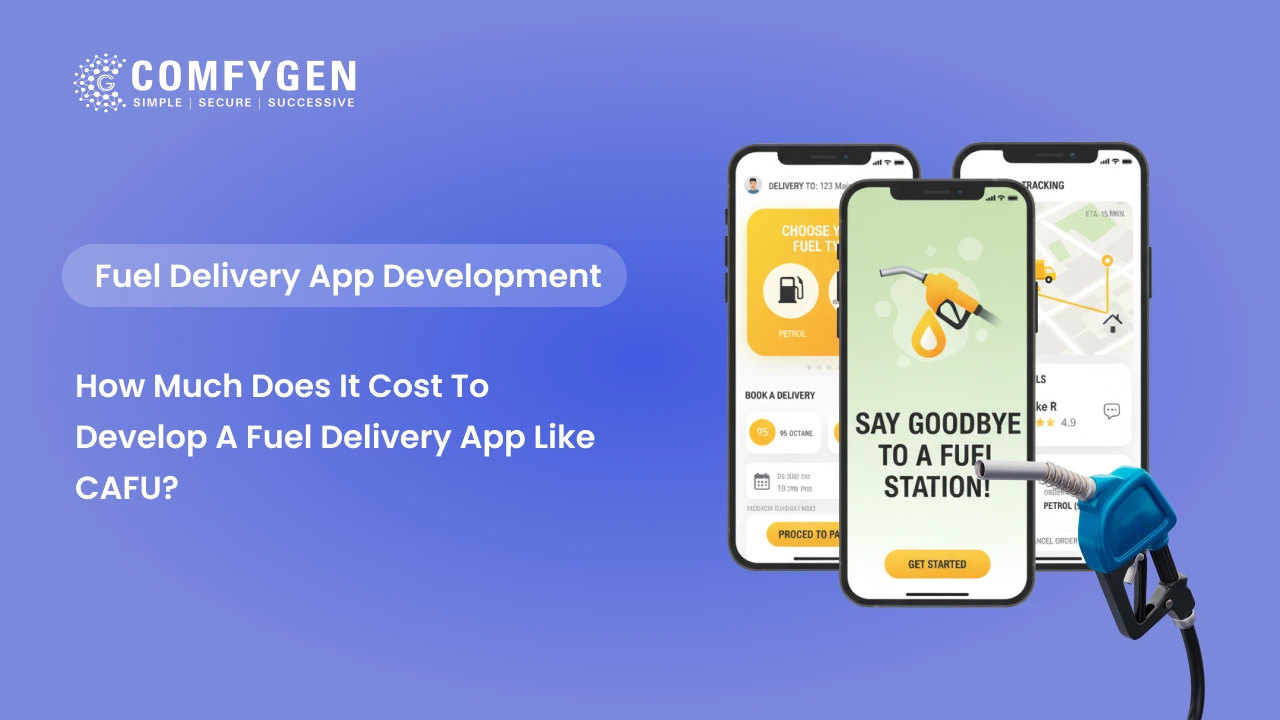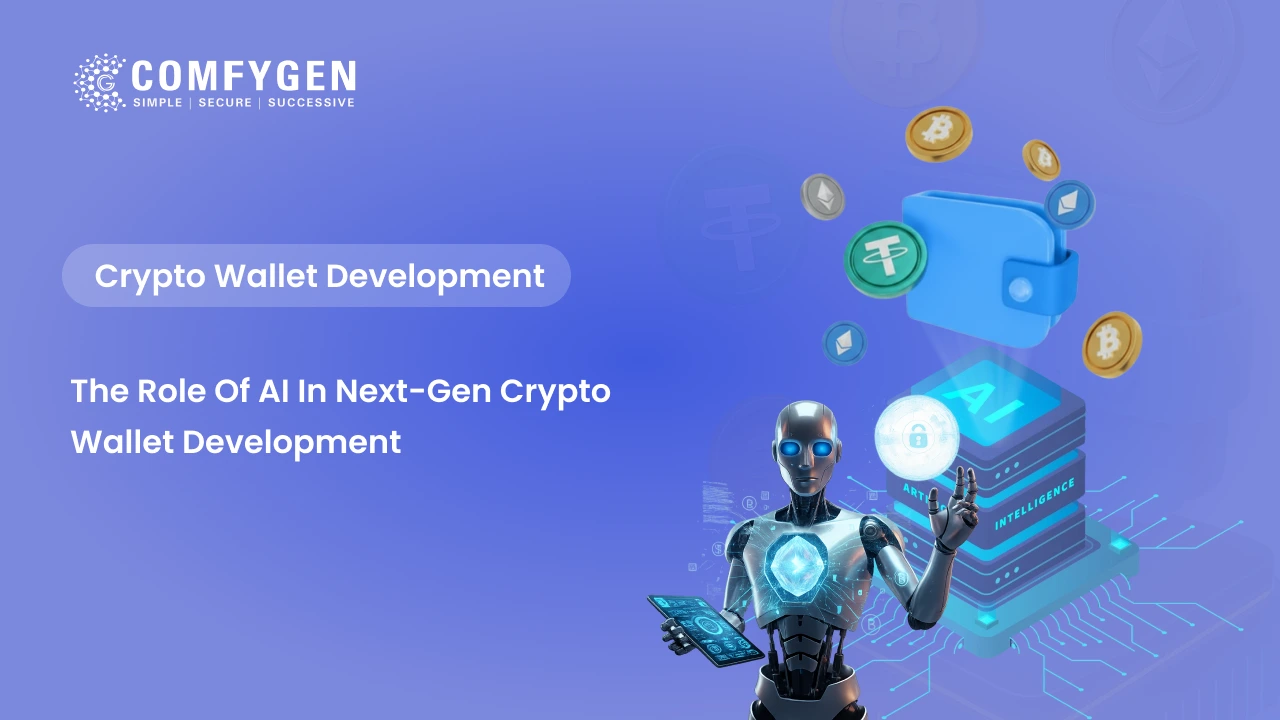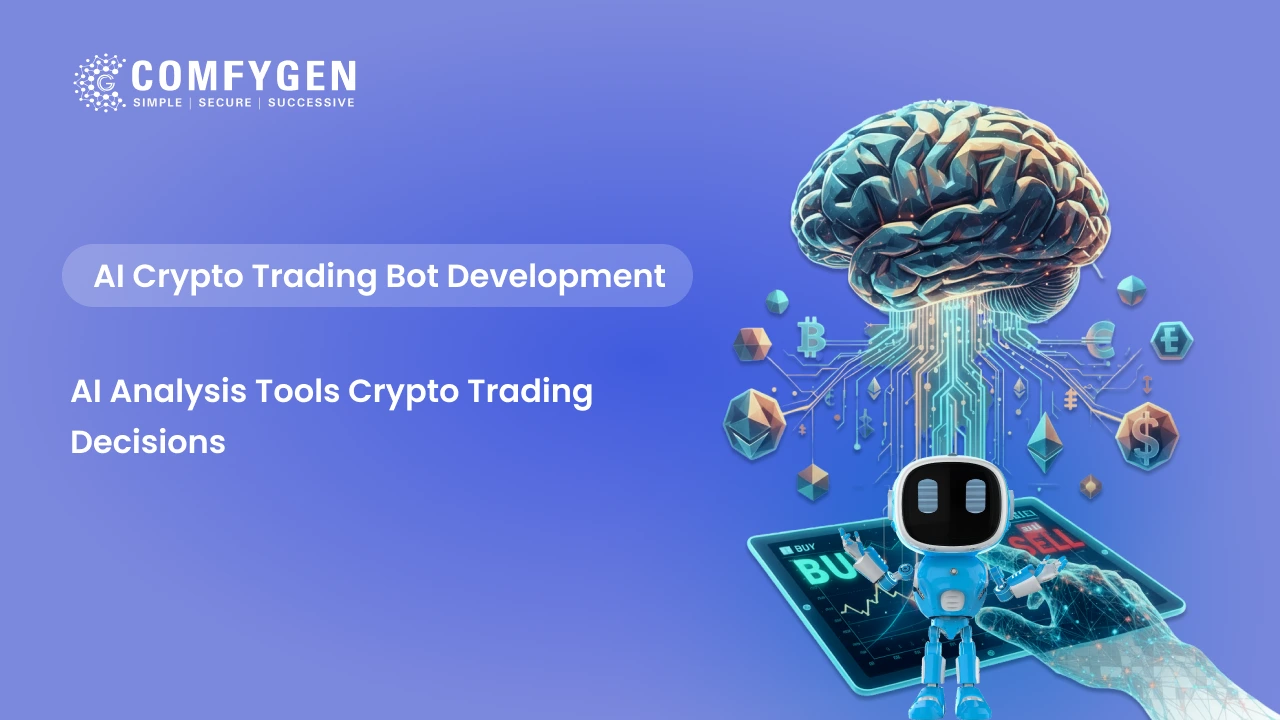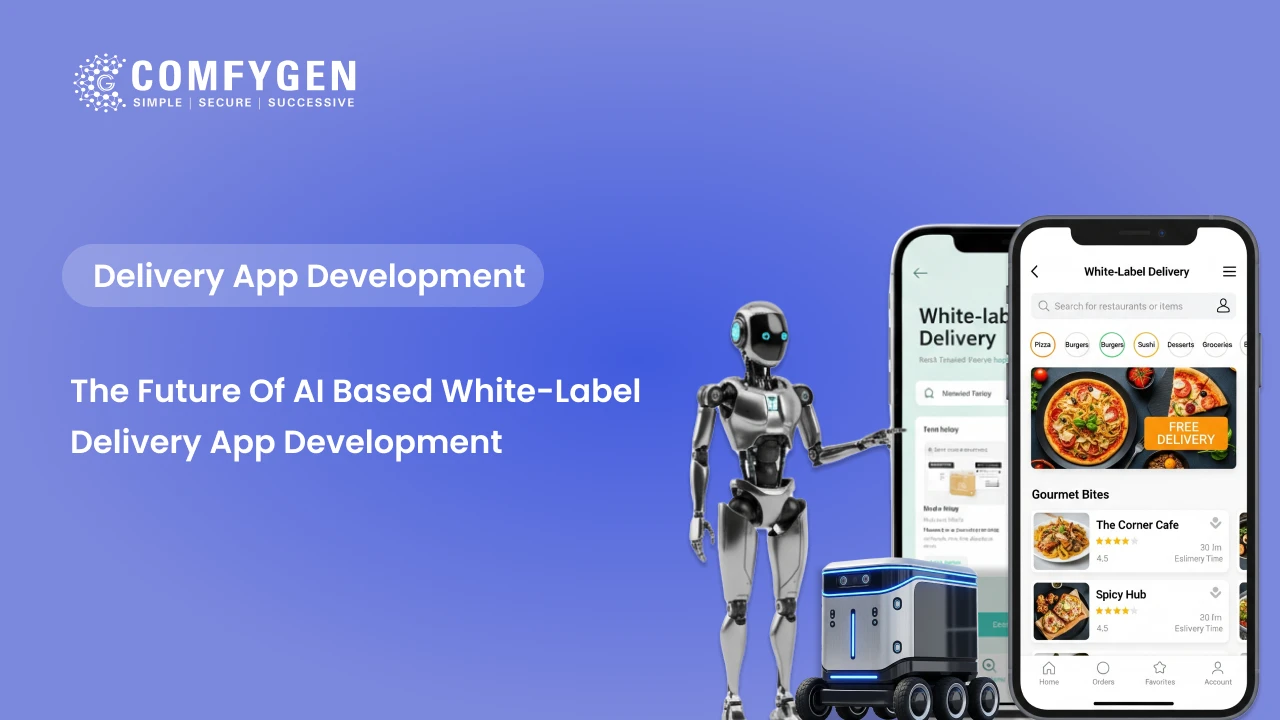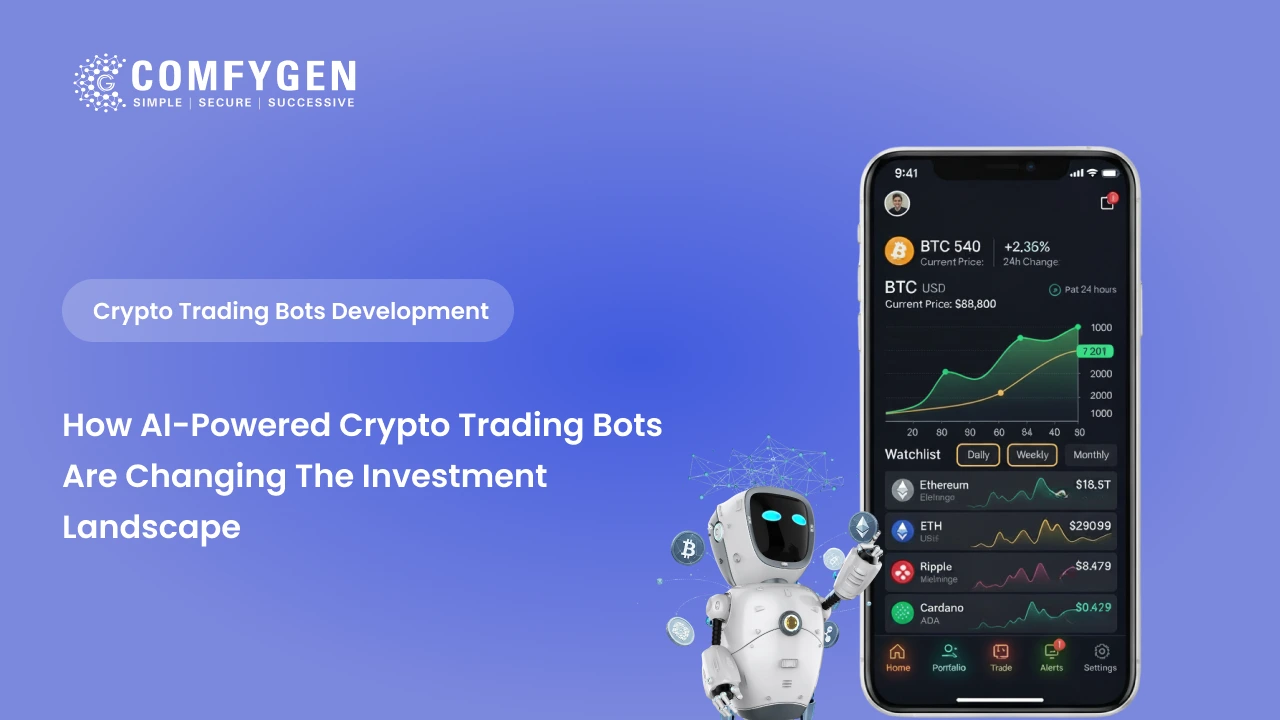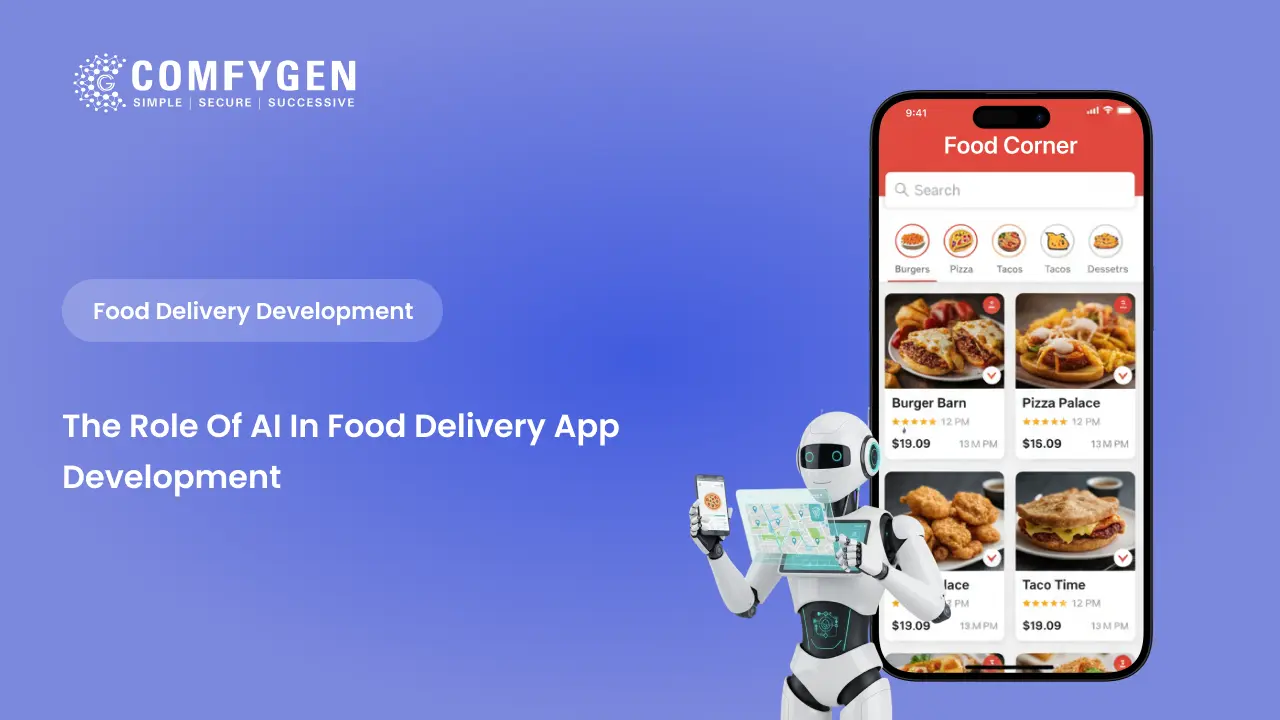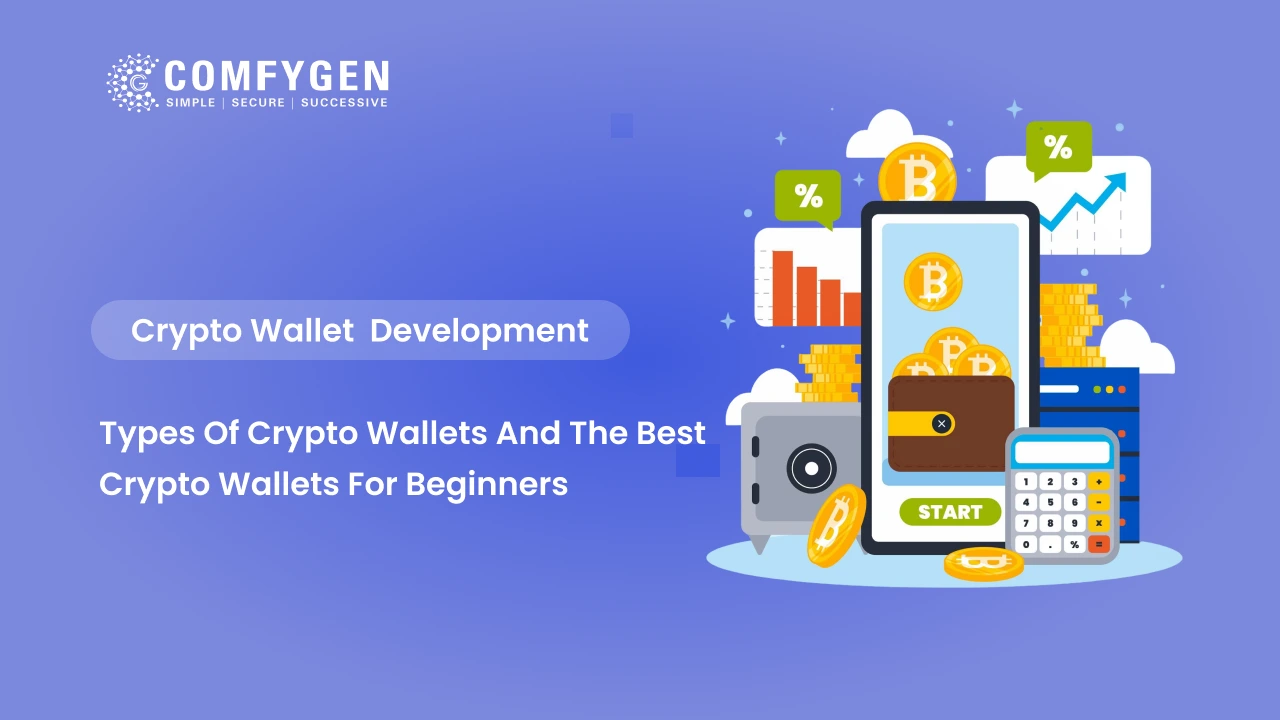How Much Does It Cost to Develop a Fuel Delivery App Like CAFU?
The rising demand for fuel delivery services has made apps like CAFU a benchmark for convenience, efficiency, and innovative technology in the automotive industry. Entrepreneurs and businesses looking to enter this niche often ask, “How much does it cost to develop fuel delivery app like CAFU?”
This comprehensive guide explores the fuel delivery app development cost, breaking it down by features, platform choice, backend infrastructure, integrations, and compliance requirements. It also highlights the difference between building a fuel delivery app MVP versus a full-featured enterprise app, providing real-world estimates for startups and established companies alike.
What is CAFU?
CAFU is a top on-demand fuel delivery and vehicle service app from the UAE, making refueling and vehicle maintenance quick and convenient. It serves cars, motorcycles, and boats, and offers extras like car washes, oil changes, and battery replacements.
Founded in 2018 by Rashid Al Ghurair, CAFU started with free fuel deliveries to attract users and later introduced delivery fees and subscription plans for unlimited fuel services.
With its easy-to-use app, real-time tracking, and reliable service, CAFU has set the standard for fuel delivery apps, becoming a benchmark in the region for convenient, customer-focused vehicle solutions.
Why on-demand fuel delivery apps are trending
In recent years, on-demand services have transformed the way people access everyday necessities. Fuel delivery apps, such as CAFU, are becoming increasingly popular because they bring convenience, speed, and reliability to vehicle owners, eliminating the need to visit petrol stations physically.
With the rise of blockchain development, these apps are leveraging secure, transparent, and decentralized systems to manage transactions, fuel supply chains, and user data efficiently. Urban traffic congestion, busy schedules, and a growing preference for digital-first solutions are driving adoption among individual vehicle owners and corporate fleets alike. This trend highlights a shift in consumer behavior towards instant gratification, safety, and time efficiency.
1. Time-Saving Convenience
- Users can order fuel anytime from their home, office, or roadside.
- Avoids long queues at petrol stations, especially during peak hours.
2. Emergency Refueling
- On-demand fuel delivery ensures drivers don’t get stranded due to empty fuel tanks.
- Ideal for roadside assistance and urgent fleet needs.
3. Contactless & Safe Transactions
- Digital payments reduce physical contact.
- Particularly valuable during health-conscious times (pandemics, hygiene concerns).
4. Fleet Management & Corporate Usage
- Businesses can schedule bulk fuel deliveries for multiple vehicles.
- Provides tracking and cost control for fleet operations.
5. Integration with Smart Technology
- GPS tracking for real-time delivery updates.
- Notifications for order status, fuel prices, and loyalty rewards.
6. Growing Urban Demand
- Increasing number of vehicle owners in cities prefer doorstep services.
- Rising smartphone penetration makes app-based fuel delivery accessible.
7. Additional Services
- Many apps include car wash, battery replacement, and oil changes, creating an all-in-one convenience platform.
Features That Make a Fuel Delivery App Like CAFU Successful
If you want to build a mobile app similar to CAFU, the key to its success lies in integrating high-quality, user-centric features that enhance functionality, convenience, and the overall user experience. A well-designed fuel delivery app developed through expert mobile app development should cater to the needs of three main panels: the user panel, the driver/tanker panel, and the admin panel.
While these core features form the foundation, incorporating advanced functionalities during the mobile app development process can further improve usability and business efficiency—though they may also influence the overall fuel delivery app development cost.
1. User Panel Features
- Registration & Profile Management: Simple sign-up via email, phone, or social media.
- Fuel Ordering & Scheduling: Select fuel type, quantity, and delivery location.
- Real-Time GPS Tracking: Track the fuel tanker in real-time for convenience and transparency.
- Payment Integration: Secure payment options, including credit/debit cards, UPI, wallets, or subscriptions.
- Order History & Receipts: Keep track of past orders and generate invoices.
- Notifications & Alerts: Receive updates on delivery status, discounts, and loyalty rewards.
2. Driver/Tanker Panel Features
- Registration & Verification: Driver identity verification and document submission.
- Trip Management: Accept or reject delivery requests with route optimization.
- Navigation & GPS: Turn-by-turn directions to reach the customer efficiently.
- Earnings & Analytics: Track completed trips, payments received, and performance metrics.
3. Admin Panel Features
- Dashboard & Analytics: Monitor orders, user activity, and fleet operations.
- Fleet Management: Assign drivers, manage tankers, and track fuel inventory.
- Payment Management: Handle transactions, refunds, and subscriptions.
- Customer Support Tools: Resolve queries, complaints, and track feedback efficiently.
- Advanced Reporting: Analyze trends, popular delivery areas, and peak usage times.
How Much Does It Cost to Build an App Like CAFU?
Building an app like CAFU involves several factors that directly influence the fuel delivery app development cost. The price varies depending on the app’s complexity, chosen platform (iOS, Android, or both), design requirements, integrations, and additional advanced features.
On average:
- Basic MVP (Minimum Viable Product): $25,000 – $40,000
- Includes essential features like user registration, fuel booking, real-time GPS tracking, and secure payments.
- Mid-range App: $50,000 – $80,000
- Adds advanced features like subscription plans, loyalty programs, admin dashboard, and analytics.
- Enterprise-level App / CAFU Clone: $100,000+
- Full-featured solution with fleet management, AI-based demand prediction, multi-region support, and additional services like car wash or oil changes.
Fuel Delivery App MVP Cost vs Full Development
When you plan to build a fuel delivery app like CAFU, it’s crucial to understand the difference between an MVP (minimum viable product) and a full-featured app. This will help you manage your budget efficiently and enter the market quickly.
1. What is a Fuel Delivery App MVP?
An MVP is a basic version of your app that includes only the essential features necessary to launch and test your idea.
It allows you to:
- Validate the concept with real users
- Collect feedback before investing in full development
- Reduce initial investment and risk
Core features of a fuel delivery app MVP include:
- User registration & login
- Fuel booking & scheduling
- Real-time GPS tracking
- Secure payment gateway
- Basic admin panel
Estimated Fuel Delivery App MVP Cost: $25,000 – $40,000
2. Full-Feature Fuel Delivery App Development
A full-featured app goes beyond the basics and includes advanced functionalities that enhance user experience and scalability.
Additional features may include:
- Loyalty programs and rewards
- Subscription-based refueling
- Fleet management module for corporate clients
- AI-based fuel demand prediction
- Multi-region support and advanced analytics
- Extra services like car wash, battery replacement, or oil changes
Estimated Full App Development Cost: $50,000 – $100,000+
3. Key Differences Between MVP and Full App
| Feature | MVP | Full App |
| Features | Core essentials | Core + advanced features |
| Development Time | 2–4 months | 5–9 months |
| Cost | $25k – $40k | $50k – $100k+ |
| Purpose | Test idea, gather feedback | Scale business, attract more users |
4. Why Start with an MVP
- Faster market entry
- Lower on-demand fuel delivery app cost initially
- Ability to iterate based on user feedback
- Reduce financial risks before committing to a full-scale launch
Partnering with a professional development company like Comfygen Technologies ensures that your fuel delivery app MVP is built efficiently, while keeping the option to scale into a full-featured app seamless and cost-effective.
Country-wise Hourly Rates and Details (USD)
When planning the development of an app like CAFU, understanding country-wise hourly development rates is crucial for estimating your budget accurately. Software development costs vary significantly depending on the region, the expertise of developers, and the complexity of the project.
For example, North America and Western Europe tend to have higher hourly rates due to premium quality and experience, while Asia and Eastern Europe offer cost-effective solutions with skilled developers. A popular choice for startups in India, where affordable and high-quality development is possible, ComfyGen Technologies delivers.
Here’s a breakdown of average hourly rates in USD by region:
| Region | Countries Included | Hourly Rate Range (USD) |
| North America | USA, Canada | $50 – $180 |
| Western Europe | Germany, Netherlands, UK, France | $45 – $120 |
| Eastern Europe | Poland, Ukraine, Romania, Bulgaria, etc. | $25 – $99 |
| Latin America | Brazil, Argentina, Colombia, Costa Rica | $25 – $55 |
| Asia | India, Philippines, Vietnam, Indonesia, Malaysia, Thailand, China, Japan | $15 – $149+ |
| Africa | South Africa, Kenya, Morocco | $20 – $50 |
| Oceania | Australia | $45 – $120 |
Budget-Friendly Approaches to Fuel Delivery App Development
Developing a fuel delivery app like CAFU can seem expensive, but with the right strategies, startups and enterprises can significantly reduce their fuel delivery app development cost without compromising quality. Here are some proven budget-friendly approaches:
1. Start with an MVP (Minimum Viable Product)
Instead of building a full-featured app from day one, launch with a fuel delivery app MVP that includes only essential features such as booking, GPS tracking, and payments. This reduces initial costs and allows you to validate your idea before scaling.
2. Choose Cross-Platform Development
Building separate native apps for iOS and Android doubles the budget. Frameworks like Flutter or React Native allow you to build once and deploy across platforms, lowering the overall CAFU app development cost.
3. Use Pre-Built or White-Label Solutions
A CAFU clone app or a white-label solution from companies like Comfygen Technologies can save time and money compared to developing everything from scratch.
4. Prioritize Core Features First
Focus on high-value features like secure payments, GPS tracking, and order scheduling. Add advanced features like AI prediction, fleet management, or subscription plans later as your business grows.
5. Outsource Development to Cost-Effective Regions
Hiring developers from countries like India can lower development costs by 40–60% compared to the USA or Europe while maintaining top-quality standards.
6. Opt for Cloud-Based Infrastructure
Using scalable cloud platforms (AWS, Google Cloud, Azure) eliminates the need for heavy upfront infrastructure investments and allows you to pay-as-you-grow.
7. Regular Updates Instead of Heavy Upfront Features
Instead of overloading the app with features initially, roll out updates gradually. This spreads costs over time and ensures your app evolves with user feedback.
Why Choose Comfygen Technologies for Fuel Delivery App Development
Nowadays, if you want to develop a fuel delivery app like CAFU, choosing the right development partner is crucial. Comfygen Technologies is a trusted fuel delivery app development company that provides secure, scalable, and cost-effective solutions tailored for your business.
The experts at Comfygen don’t just build apps—they design end-to-end digital solutions customized to your business goals and market needs. Whether you need a custom fuel delivery app, a CAFU clone, or an MVP, their team delivers fast and reliable solutions.
Conclusion
On-demand fuel delivery apps like CAFU have set a benchmark for convenience and efficiency in the automotive industry. The cost of developing a fuel delivery app largely depends on its features, platform, backend, and advanced modules.
For startups app, launching an MVP is a cost-effective approach, while full-featured apps are ideal for large-scale growth. Regional development rates and market trends also play a significant role in determining the overall cost.
Partnering with Comfygen Technologies ensures a scalable, secure, and cost-efficient app development process, enabling businesses to quickly launch a competitive fuel delivery solution like CAFU.

Mr. Saddam Husen, (CTO)
Mr. Saddam Husen, CTO at Comfygen, is a renowned Blockchain expert and IT consultant with extensive experience in blockchain development, crypto wallets, DeFi, ICOs, and smart contracts. Passionate about digital transformation, he helps businesses harness blockchain technology’s potential, driving innovation and enhancing IT infrastructure for global success.

